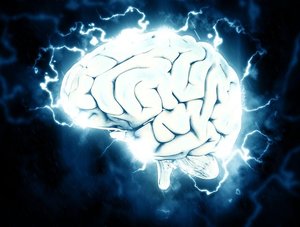Seattle Hypoxic Brain Injury Lawyers
 The brain is your most vital organ. Your brain needs a regular supply of oxygen to stay healthy. When your brain does not get enough oxygen, a hypoxic brain injury occurs. When your brain is completely cut off from oxygen, an anoxic brain injury results.
The brain is your most vital organ. Your brain needs a regular supply of oxygen to stay healthy. When your brain does not get enough oxygen, a hypoxic brain injury occurs. When your brain is completely cut off from oxygen, an anoxic brain injury results.
Hypoxic and anoxic brain injuries have many causes, including near-drowning, choking, sudden cardiac arrest, carbon monoxide poisoning, drug overdose, asthma attacks, and traumatic brain injuries. These injuries require prompt medical treatment. But even with treatment, a serious brain injury has severe, lifelong consequences.
If you or a loved one suffered a traumatic brain injury in the Seattle area, you need an experienced brain injury lawyer on your side. If your severe brain injuries were due to someone else's negligence, you may be legally entitled to compensation. A Seattle brain injury attorney can help.
At Moseley Collins Law, we have successfully handled hypoxic and anoxic brain injury cases for over 40 years. We have won some of the largest settlements and verdicts for numerous brain injury victims. Moseley Collins, our lead attorney, has even written a book on the subject that's used by other lawyers across the country.
How a Hypoxic Brain Injury Occurs The brain requires a constant supply of oxygen to function properly. When oxygen levels drop too low, brain cells start to die. The longer the brain goes without oxygen, the greater the damage. Even a loss of oxygen for just a few minutes can have catastrophic and irreversible effects.
The brain requires a constant supply of oxygen to function properly. When oxygen levels drop too low, brain cells start to die. The longer the brain goes without oxygen, the greater the damage. Even a loss of oxygen for just a few minutes can have catastrophic and irreversible effects.
Some common causes of hypoxic brain injuries include:
Drowning or near-drowning. When a person is submerged under water, oxygen cannot reach the lungs and brain. Brain damage starts after just four to six minutes without oxygen.
Choking. Food or objects lodged in the throat can block the airway. Oxygen levels quickly drop.
Sudden cardiac arrest. When the heart stops beating, oxygenated blood stops flowing to the brain. Permanent damage occurs within minutes.
Carbon monoxide poisoning. CO is an odorless, colorless gas that prevents red blood cells from carrying oxygen.
Drug or alcohol overdose. Certain drugs such as opioids can create respiratory depression.
Asthma attack. Severe attacks can prevent enough oxygen from reaching the lungs.
Traumatic brain injury. The impact can impair breathing and restrict the flow of oxygen to the brain.
Anesthesia error. Lack of oxygen during surgery can lead to hypoxic or anoxic brain injury.
Strangulation. Cutting off oxygen to the brain during strangulation causes rapid damage.
Even in newborns, a lack of oxygen during the birthing process can impair brain development.
Effects of a Hypoxic Brain Injury The effects of a hypoxic brain injury depend on the severity and duration of oxygen deprivation. Parts of the brain that are very sensitive to oxygen loss, such as the cortex, hippocampus, and basal ganglia, are usually the first damaged.
The effects of a hypoxic brain injury depend on the severity and duration of oxygen deprivation. Parts of the brain that are very sensitive to oxygen loss, such as the cortex, hippocampus, and basal ganglia, are usually the first damaged.
Brain injury statistics show that common effects include:
Cognitive deficits. Issues with memory, attention, concentration, problem-solving, speech, and decision-making.
Behavior changes. Irritability, impulsivity, and aggression.
Movement disorders. Difficulty with balance, motor function, swallowing, and speaking.
Seizures. Electrical disturbances in the brain can trigger seizures.
Vegetative state. The person is awake but not aware or responsive.
Coma. The person is completely unconscious and unresponsive. This is the most severe brain injury outcome.
Death. In extreme cases, the damage is so severe that the body cannot survive.
The specific symptoms depend on the parts of the brain affected and the severity of the damage. Even mild oxygen deprivation can leave a person with cognitive and behavioral disabilities. Prompt emergency treatment is crucial to minimize permanent effects.
Evaluating the Extent of Brain DamageIn the wake of a hypoxic incident, doctors conduct evaluate the extent and location of the brain damage. This is critical in guiding treatment and predicting the prognosis. Some common brain injury diagnostic tools include:
CT scan. This provides a 3D X-ray of the brain and helps detect regions of cell death, bleeding, or swelling.
MRI. Magnetic resonance imaging offers more detailed views of soft tissue abnormalities in the brain.
PET scan. A positron emission tomography scan reveals how active different areas of the brain are.
EEG. Electroencephalography monitors electrical activity in the brain. Abnormal discharges may indicate damage.
Neuropsychological testing. This assesses cognitive skills such as memory, reasoning, and attention. Deficits point to affected brain regions.
Coma rating scales. Tools such as the Glasgow Coma Scale help measure the depth of prolonged comas.
Biomarkers. Proteins and enzymes in the blood can signal brain cell damage.
Prompt testing ensures optimal treatment. However, mild injuries may not show up right away. Continued monitoring is key. As hypoxic brain injury lawyers, we work with top medical experts to evaluate the full extent of the damage for fair compensation.
Proving Liability for Hypoxic Brain Injuries To pursue a successful brain injury claim, our lawyers must prove someone else was legally liable for your injury due to negligence or misconduct. There are two key elements to proving negligence:
To pursue a successful brain injury claim, our lawyers must prove someone else was legally liable for your injury due to negligence or misconduct. There are two key elements to proving negligence:
Duty of care. The defendant owed a duty to the victim to avoid the accident, such as providing safe medical care, maintaining safe property, and adhering to safety practices.
Breach of duty. The defendant failed to uphold their duty through errors or negligence, such as a lifeguard not paying attention, a doctor making a mistake during surgery, or a property owner having dangerous property conditions.
The facts of each case determine the appropriate defendants. In medical malpractice cases, both individual healthcare providers and hospitals and facilities can be named. Other examples include:
- Drowning. Property owners, lifeguards, and boat operators.
- Choking, Nursing homes, restaurants, and cafeterias.
- Cardiac arrest. EMTs and ambulance companies.
- Carbon monoxide. Landlords and utility companies.
- Accidents. Drivers, manufacturers, and employers.
Thorough investigation and litigation experience are needed to prove negligence and win compensation. A traumatic brain injury lawyer identifies liable parties and constructs a strong case on your behalf.
Damages in Hypoxic Brain Injury Lawsuits At Moseley Collins Law, our brain injury attorneys pursue full compensation for all losses and damages. With millions in verdicts secured for clients, we know how to maximize recoveries. Available damages include:
At Moseley Collins Law, our brain injury attorneys pursue full compensation for all losses and damages. With millions in verdicts secured for clients, we know how to maximize recoveries. Available damages include:
Past and future medical expenses. All treatment and care costs related to the brain injury. This includes hospitalization, rehab, long-term care, medications, therapies, equipment, and in-home care. Document every expense.
Lost income. Any wages lost due to inability to work.
Loss of future income. The impact on long-term earning capacity if disabilities prevent working.
Pain and suffering. Compensation for physical and emotional distress.
Loss of enjoyment of life. Damages to account for the injury's impact on relationships, activities, hobbies, and quality of life.
Disfigurement. When injuries cause permanent scarring or disfigurement.
Wrongful death damages. For fatal cases, compensation for funeral costs, lost companionship, and benefits that survivors would have received.
A hypoxic brain injury's damage cannot truly be measured in dollars. But sufficient compensation helps the victim and family move forward with critical resources. Our brain injury lawyer will fight for maximum recovery.
How Long Do I Have to File a Hypoxic Brain Injury Lawsuit? Each state has statutes of limitations, or legal deadlines, to file brain injury lawsuits. Missing the cutoff can destroy any chance of compensation, so quick legal consultation is imperative. In Washington, your deadlines for claims include:
Each state has statutes of limitations, or legal deadlines, to file brain injury lawsuits. Missing the cutoff can destroy any chance of compensation, so quick legal consultation is imperative. In Washington, your deadlines for claims include:
Personal injury for adults. Within three years of the date of injury.
Personal injury for minors. For minors, the statute of limitations is generally tolled, or paused, until the victim's 18th birthday, after which they have three years to file.
Wrongful death. Within three years of the incident.
Medical malpractice. Within three years of the negligent act or omission that caused the injury or one year from when the negligence was or should have been discovered, whichever occurs later. In some cases, Washington's statute of repose may extend the filing deadline to up to eight years.
In Washington, the clock typically starts running on the date of the incident, not when you discover the extent of the brain injury. Talk to one of our Seattle brain injury attorneys to avoid missing your deadline.
Hypoxic Brain Injury Settlement ProcessBrain injury claims can often be settled without a trial. The settlement process involves:
Initial demand. Our attorney sends a demand letter to the insurance company seeking damages based on your injuries, expenses, and losses. We always demand higher than what we expect to settle for.
Investigation. The insurer gathers records, talks to witnesses, and performs their own damage valuation. This takes weeks or months.
Settlement offer. The insurer usually makes a low offer first to see if the client will take it. We advise our clients to reject initial offers.
Negotiation. Through a back-and-forth with evidence and expert opinions, our lawyer works out a fair settlement amount acceptable to the client.
Settlement agreement. An attorney drafts a binding legal agreement outlining the settlement terms and releasing the defendant from further liability.
Payment. The defendant's insurance company distributes the negotiated settlement amount accordingly.
Case dismissed. With a signed settlement agreement, the court case is dismissed.
Settlements avoid lengthy trials. But if at any point the insurer refuses reasonable terms, our dedicated litigators are fully prepared to take your case to court for maximum recovery.
Steps in a Hypoxic Brain Injury Lawsuit If a fair settlement can't be reached, you may decide to pursue legal action for damages. One of our attorneys will walk you through every step of the process:
If a fair settlement can't be reached, you may decide to pursue legal action for damages. One of our attorneys will walk you through every step of the process:
- Free initial consultation. Meet with our team to evaluate your potential claim. There are never any upfront fees.
- Sign the agreement. If we take your case, we will sign a contingency fee agreement outlining our compensation, which is a percentage of the final damages you may be awarded. You pay nothing upfront.
- Investigation. We thoroughly gather evidence such as medical records, employment documentation, witness statements, and incident reports.
- Assess damages. We determine the full scope of expenses and losses stemming from the hypoxic injury.
- Hire experts. We retain physicians, economists, and other expert witnesses to assess damages and prove liability.
- Demand letter. We send a letter to the defendants detailing negligence and demanding a settlement.
- Negotiation. We work to negotiate a fair settlement to cover all damages and avoid trial.
- Mediation. If needed, we go through court mediation to find a middle ground.
- Trial. If a satisfactory settlement is not reached, we take the case to trial before a jury.
- Judgment. The jury awards damages. We help our clients collect what they are owed.
This entire process usually takes 12 months to 24 months. We keep our clients informed and updated every step of the way. Our goal at all times is maximizing your recovery and justice.
Tips for Finding the Best Brain Injury Lawyer Choosing the right hypoxic brain injury attorney is critical to winning compensation and securing your future. Key tips include:
Choosing the right hypoxic brain injury attorney is critical to winning compensation and securing your future. Key tips include:
Specialization. Look for a lawyer and firm concentrating specifically on brain injury litigation. Check their case histories and results.
Resources. Complex cases require substantial resources for top experts, life care planners, and technology. Choose a sizable, well-funded firm.
Reputation. Search respected lawyer rating services such as Super Lawyers, Avvo, and Martindale-Hubbell. Give preference to highly-rated attorneys.
Contingency fee. Beware of any lawyer asking for money upfront. Ethical injury lawyers work on contingency fees, meaning they only get paid if you win damages.
Personal attention. Find an attorney who will give your case focused, customized attention, not pass it off to paralegals and junior associates.
Level of experience. When it comes to severe injuries, pick a seasoned lawyer, not someone fresh out of law school. Ask how many hypoxic cases they have handled and their results.
Medical resources. Look for a firm that can connect you to expert doctors and rehabilitation programs. This is invaluable for long-term recovery.
Take time to research lawyers' credentials, case results, and client reviews. Meet with the attorney handling your case. Make sure you feel confident entrusting them with your case.
Wrongful Death Claims for Fatal Hypoxic Injuries When a loved one dies as the result of another's negligence, family members may file a wrongful death lawsuit seeking compensation. Though no amount of money can undo the tragedy, these damages provide crucial assistance with:
When a loved one dies as the result of another's negligence, family members may file a wrongful death lawsuit seeking compensation. Though no amount of money can undo the tragedy, these damages provide crucial assistance with:
- Funeral and burial costs
- Loss of financial support and benefits, both present and future
- Loss of companionship, protection, and guidance
- Pain and suffering of the deceased prior to death
- Loss of love, care, and consortium
- Severe emotional distress
- Loss of inheritance funds and assets
We have successfully obtained wrongful death damages for clients who lost a loved one due to oxygen deprivation. Though each state has its own laws, in Washington these claims generally must be filed within three years of the date of death. It is advisable to contact our office promptly so there is adequate time to investigate, prepare the claim, and retain experts.
During an initial consultation, our attorney can advise whether a wrongful death lawsuit may be feasible and the maximum damages you may recover. Though we cannot take away the pain, we can help families in mourning take legal action so they have the resources to heal and move forward.
Common Causes of Hypoxic Brain Injury LawsuitsHypoxic brain injuries arise from a wide range of circumstances when negligence leads to a lack of oxygen. Our law firm pursues claims involving:
Birth InjuryBirths may involve errors during labor and delivery that deprive the baby of oxygen.
Surgical ErrorDuring surgery, anesthesia mistakes and airway obstructions can deprive your brain of oxygen.
Nursing Home NeglectResidents can choke due to a lack of supervision.
Drowning AccidentsTragic deaths can result from poor lifeguarding and unsafe pools.
Carbon Monoxide LeaksDangerous levels of CO can result from faulty furnaces, gas appliances, and detectors.
Cardiac ArrestEmergency responders' negligence may cause anoxic or hypoxic brain injuries.
StrangulationCrimes, domestic violence, or accidents may result in asphyxiation.
Drug OverdoseOpioids, alcohol, or combinations can lead to dangerous respiratory depression.
Motor Vehicle AccidentsAccident may cause suffocation and other traumatic injuries that deprive your brain of oxygen.
Premises LiabilityUnsafe property conditions often lead to falls and head injuries.
Work AccidentsFalls, electrocution, and blasts may result in workplace accidents.
We thoroughly investigate how the brain damage occurred, whether protocols were followed, and who might bear liability under Washington law. Our sole focus is constructing the strongest case and achieving justice for our clients.
Hypoxic Brain Damage in Infants When an infant suffers oxygen deprivation, it can result in lasting developmental disabilities, cerebral palsy, deficits in motor function and cognition, and other chronic conditions. Causes include:
When an infant suffers oxygen deprivation, it can result in lasting developmental disabilities, cerebral palsy, deficits in motor function and cognition, and other chronic conditions. Causes include:
- Errors during labor and delivery. Use of forceps, delayed C-section.
- Umbilical cord compression. Cord wrapped around the neck.
- Placental abruption. Placenta separates from the uterus.
- Infection. Leads to fever and stresses the baby.
- Birth before 37 weeks. Premature babies are more vulnerable.
- Lack of blood and oxygen to the baby. Due to hypertension or diabetes in the mother.
- Fetal stroke. Blocks oxygen to the brain.
- Breech birth. Feet-first position strains baby.
Even a few minutes without oxygen can profoundly damage a baby's developing brain and organs. Prompt recognition and emergency intervention during delivery are critical.
Call Moseley Collins Law Today At Moseley Collins Law, our Seattle brain injury attorneys have substantial experience with birth hypoxia cases, including multimillion-dollar settlements for affected children. We aggressively pursue obstetricians, nurses, and hospitals when errors contribute to oxygen deprivation.
At Moseley Collins Law, our Seattle brain injury attorneys have substantial experience with birth hypoxia cases, including multimillion-dollar settlements for affected children. We aggressively pursue obstetricians, nurses, and hospitals when errors contribute to oxygen deprivation.
If you or a loved one has suffered a hypoxic or anoxic brain injury due to someone else's negligence, act quickly. Washington has strict deadlines for filing your claim. Call us for today for a free consultation.
 Seattle Hypoxic Brain Injury Law Firm
Seattle Hypoxic Brain Injury Law Firm

